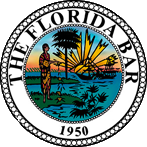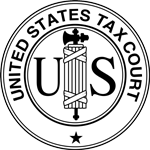- Free Consultation: (772) 418-0949 Tap Here to Call Us
Tax Lien Withdrawal

How Important is it to get a Tax Lien Withdrawal immediately?
A “withdrawal” removes the public Notice of Federal Tax Lien and assures that the IRS is not competing with other creditors for your property; however, you are still liable for the amount due. Getting this removed frees up opportunities you are currently prevented from partaking in. There are two primary options to consider.
The first option may allow withdrawal of your Notice of Federal Tax Lien after the lien release. General eligibility includes:
- Your tax liability has been satisfied, and your lien has been released.
- You are complying for the past three years in filing – all individual returns, business returns, and information returns.
- As applicable, you are current on your estimated tax payments and federal tax deposits.
The other option may allow withdrawal of your Notice of Federal Tax Lien if you have entered or converted your regular installment agreement to a Direct Debit installment agreement. General eligibility includes:

- You are a qualifying taxpayer (i.e., individuals, businesses with income tax liability only, and out-of-business entities with any type of tax debt)
- You owe $25,000 or less (If you owe more than $25,000, you may pay down the balance to$25,000 before requesting withdrawal of the Notice of Federal Tax Lien)
- Your Direct Debit Installment Agreement must fully pay the amount you owe within 60 months or before the Collection Statute expires, whichever is earlier.
- You are in full compliance with other filing and payment requirements.
- You have made three consecutive direct debit payments.
- You can’t have defaulted on your current or any previous, Direct Debit Installment agreement.
How a Lien Affects You
Assets — A lien attaches to all your assets (such as property, securities, and vehicles) and future assets acquired during the lien duration.
Credit — Once the IRS files a Notice of Federal Tax Lien, it may limit your ability to get credit. Although it does not appear on your credit report, it is public knowledge. A lender, which requires collateral for a loan, will be hesitant to proceed while knowing that their claims would be subsequent to that of the IRS.
Business — The lien attaches to all business property and all rights to business property, including accounts receivable.
Bankruptcy — If you file for bankruptcy, your tax debt, lien, and Notice of Federal Tax Lien may continue after the bankruptcy.
For Additional Information about tax liens, please see the following blogs:
- “Tax Liens and Levies“
- “Important Information About IRS Tax Liens“
- “How To Best Avoid Tax Liens“
- “How To Deal with IRS Tax Lien“
- “Can the IRS Put a Tax Lien on My House“
It is imperative to have your tax lien removed as soon as possible. You can avoid a federal tax lien by simply filing and paying all your taxes fully and on time. If you can’t file or pay on time, don’t ignore the letters or correspondence you get from the IRS. If you can’t pay the total amount you owe, payment options are available to help you settle your tax debt over time.
Let us help you find a solution to your tax lien problem. Call Harmon Tax Resolution, LLC today at 772-418-0949 or complete our online form to request a free consultation with a knowledgeable multi-licensed tax attorney-CPA-Enrolled Agent.












